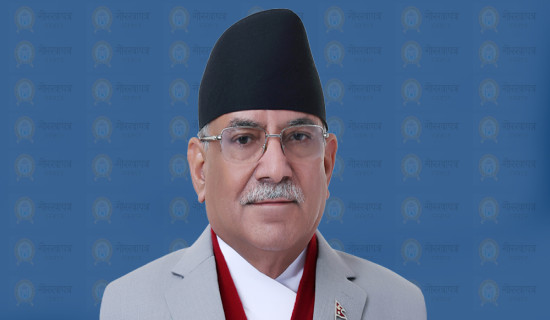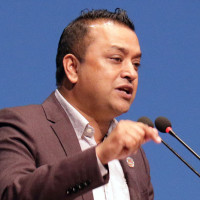- Tuesday, 3 March 2026
Popular weight-loss drugs may raise risk of complications under anesthesia
New York, Aug. 14: Patients who take blockbuster drugs like Wegovy or Ozempic for weight loss may face life-threatening complications if they need surgery or other procedures that require empty stomachs for anesthesia. This summer's guidance to halt the medication for up to a week may not go far enough, either.
Some anesthesiologists in the U.S. and Canada say they've seen growing numbers of patients on the weight-loss drugs who inhaled food and liquid into their lungs while sedated because their stomachs were still full — even after following standard instructions to stop eating for six to eight hours in advance.
The drugs can slow digestion so much that it puts patients at increased risk for the problem, called pulmonary aspiration, which can cause dangerous lung damage, infections and even death, said Dr. Ion Hobai, an anesthesiologist at Massachusetts General Hospital in Boston.
"This is such a serious sort of potential complication that everybody who takes this drug should know about it," said Hobai, who was among the first to flag the issue.
Nearly 6 million prescriptions for the class of drugs that include Wegovy and Ozempic were written between January and May in the U.S. for people who don't have diabetes, according to Komodo Health, a health care technology company. The drugs induce weight loss by mimicking the actions of hormones, found primarily in the gut, that kick in after people eat. They also target signals between the gut and the brain that control appetite and feelings of fullness, and by slowing how fast the stomach empties.
In June, the American Society of Anesthesiologists issued guidance advising patients to skip daily weight-loss medications on the day of surgery and hold off on weekly injections for a week before any sedation procedures. Dr. Michael Champeau, the group's president, said the action was based on anecdotal reports of problems — including aspiration — from around the country.
It's not clear how many patients taking the anti-obesity drugs may be affected by the issue. But because the consequences can be so dire, Hobai and a group of colleagues decided to speak out. Writing in the Canadian Journal of Anesthesia, they called for the drug to be stopped for even longer — about three weeks before sedation.
That accounts for how long semaglutide, the active medication in Wegovy, remains in the body, said Dr. Philip Jones, a Mayo Clinic anesthesiologist who is also deputy editor-in-chief of the journal.
"When 90% of it is gone, which is after three weeks, hopefully everything should go back to normal," Jones said.
Champeau and Jones both acknowledged there's not enough evidence to say for certain how long semaglutide should be held to make anesthesia safe. Many patients won't see providers far enough in advance to stop the drug three weeks before procedures, Champeau noted.
Aspiration occurs in one of every 2,000 to 3,000 operations that require sedation, and almost half of patients who aspirate during surgery develop a related lung injury. But case reports show recent patients on semaglutide had problems even when they stopped food as long as 20 hours before their procedures.
"There's nothing that says if you fast twice as long, it will be OK," Champeau said. Among the several reports detailing potentially serious problems was one of Hobai's patients, a 42-year-old man in Boston who recently began taking Wegovy, had to be intubated and suffered respiratory failure that put him in intensive care. He aspirated food that remained in his stomach despite fasting for 18 hours. (AP)

















